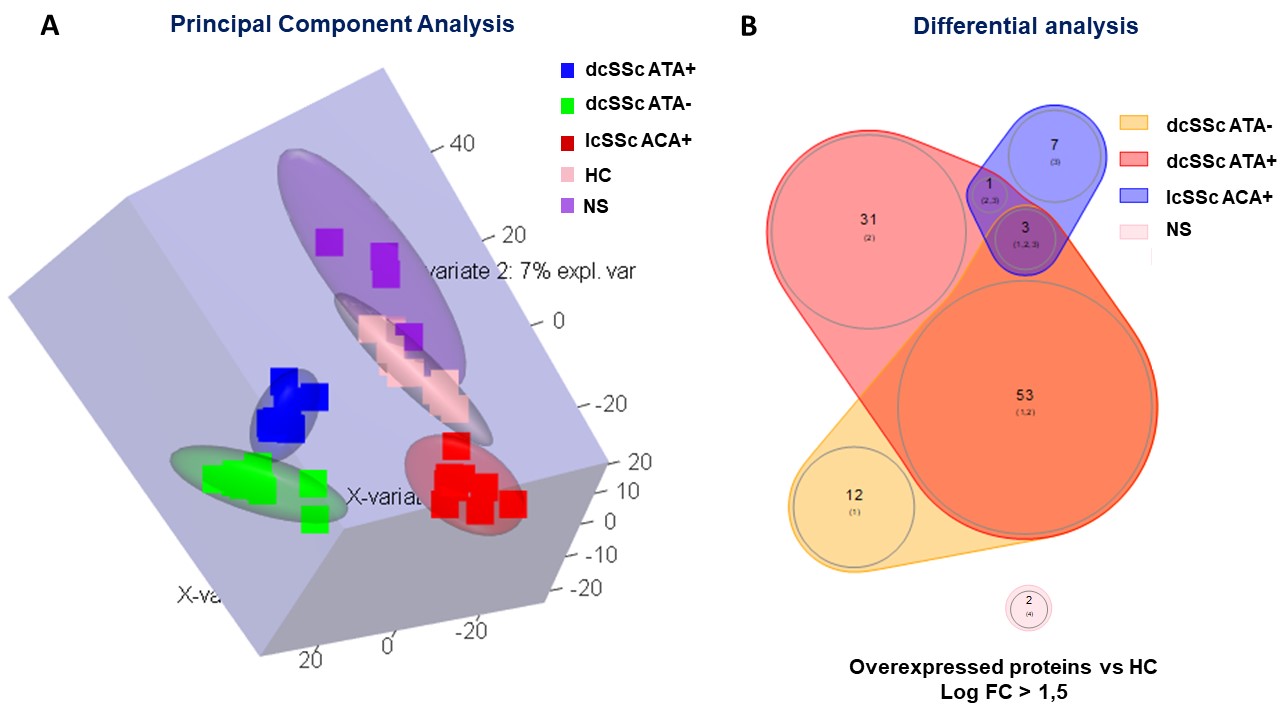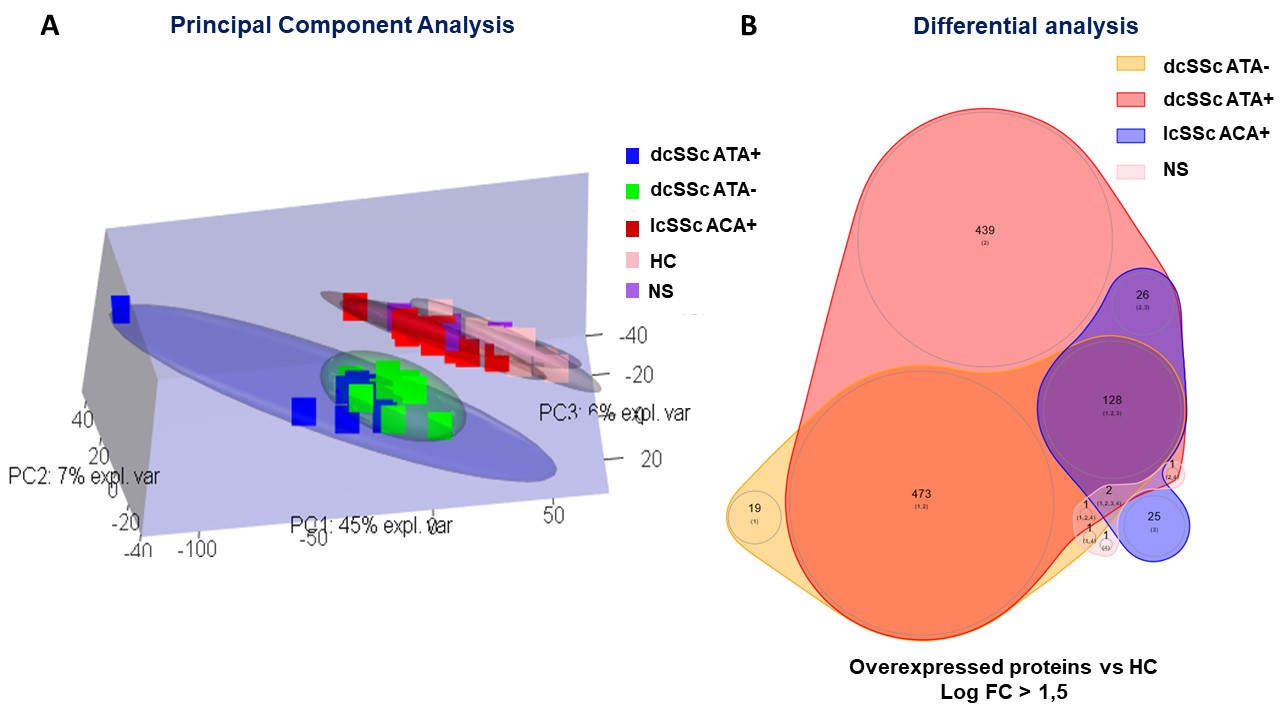Session Information
Date: Monday, November 13, 2023
Title: (0934–0964) Systemic Sclerosis & Related Disorders – Basic Science Poster
Session Type: Poster Session B
Session Time: 9:00AM-11:00AM
Background/Purpose: Autoantibodies (Aab) are frequent in systemic sclerosis (SSc). While recognized as potent biomarkers, their pathogenic role is unclear. Recently, we showed that immunoglobulins G (IgG) from SSc patients can modify the phenotype and secretome of fibroblasts (FB). The aim of this study was to gain a better understanding of the effect of purified IgG on FB by analyzing cytoplasmic and nuclear proteomic profiles.
Methods: Normal dermal FB (ATCC® Number: PCS-201-012 ™) were cultured in the presence of IgG from patients with diffuse cutaneous SSc (dcSSc, n=20), limited cutaneous SSc (lcSSc, n=10) or healthy controls (HC, n=10). Cytoplasmic and nuclear proteins were extracted and explored separately using mass spectrometry coupled with liquid chromatography. Data were visualized using principal component analysis (PCA) and protein profile were studied by performing differential analysis and gene set enrichment analysis.
Results: Cytoplasmic proteomics identified and quantified 1,630 proteins. PCA revealed five groups of subjects according to cytoplasmic proteins expression: dcSSc anti-topoisomerase-I (ATA) positive patients (dcSSc ATA+) which appeared to be the most distinct group, dcSSc ATA negative patients (dcSSc ATA-), lcSSc anti-centromere (ACA) positive patients (lcSSc ACA+), healthy controls (HC) and non-stimulated FB (NS) (Figure 1A). Fifty-three proteins were commonly overexpressed in the dcSSc ATA+ and ATA- and five in all SSc subtypes. Thirty-one proteins were exclusively overexpressed in the dcSSc ATA+ condition compared to HC such as Leucine Reach Repeat Containing 15 and Tripartite Motif Containing 25 (Figure 1B). Nucleus proteomics identified and quantified 1593 proteins. PCA revealed two main groups of subjects according to protein expression: the first was composed of dcSSc patients and the second was composed of lcSSc ACA+ patients, HC, and NS (Figure 2A). Four hundred and seventy-three proteins were commonly overexpressed in dcSSc conditions and 128 were commonly overexpressed in all SSc conditions compared to HC. A total of 439 proteins were exclusively overexpressed in dcSSc ATA+ such as Transgelin 2 and RuvB Like AAA ATPase 2 (Figure 2B).
Functional enrichment analysis revealed that cytoplasmic proteins overexpressed in the dcSSc ATA+ and dcSSc ATA- conditions were involved in protein binding. Proteins exclusively overexpressed in dcSSc ATA+ condition were involved in cell adhesion molecule binding and positive regulation of cell migration. Nuclear proteins overexpressed in dcSSc conditions were involved in protein and RNA binding.
Conclusion: IgG purified from SSc patients modified both cytoplasmic and nuclear proteins expression according to cutaneous subtype and Aab profile. The group dcSSc ATA+ induced a characteristic cytoplasmic and nuclear proteins profile. Protein binding, cell adhesion molecule binding and positive regulation of cell migration in the cytoplasm, and protein and RNA binding in the nucleus were enriched in FB co-incubated with purified IgG from dcSSc ATA+ patients.
To cite this abstract in AMA style:
Chepy A, Duhamel M, Vivier S, Chauvet C, Guilbert L, Hachulla E, Dubucquoi S, Launay D, Salzet M, Sobanski V. Immunoglobulins G Purified from Systemic Sclerosis Patients Influence Cytoplasmic and Nuclear Proteins Profile in Dermal Fibroblasts [abstract]. Arthritis Rheumatol. 2023; 75 (suppl 9). https://acrabstracts.org/abstract/immunoglobulins-g-purified-from-systemic-sclerosis-patients-influence-cytoplasmic-and-nuclear-proteins-profile-in-dermal-fibroblasts/. Accessed .« Back to ACR Convergence 2023
ACR Meeting Abstracts - https://acrabstracts.org/abstract/immunoglobulins-g-purified-from-systemic-sclerosis-patients-influence-cytoplasmic-and-nuclear-proteins-profile-in-dermal-fibroblasts/


